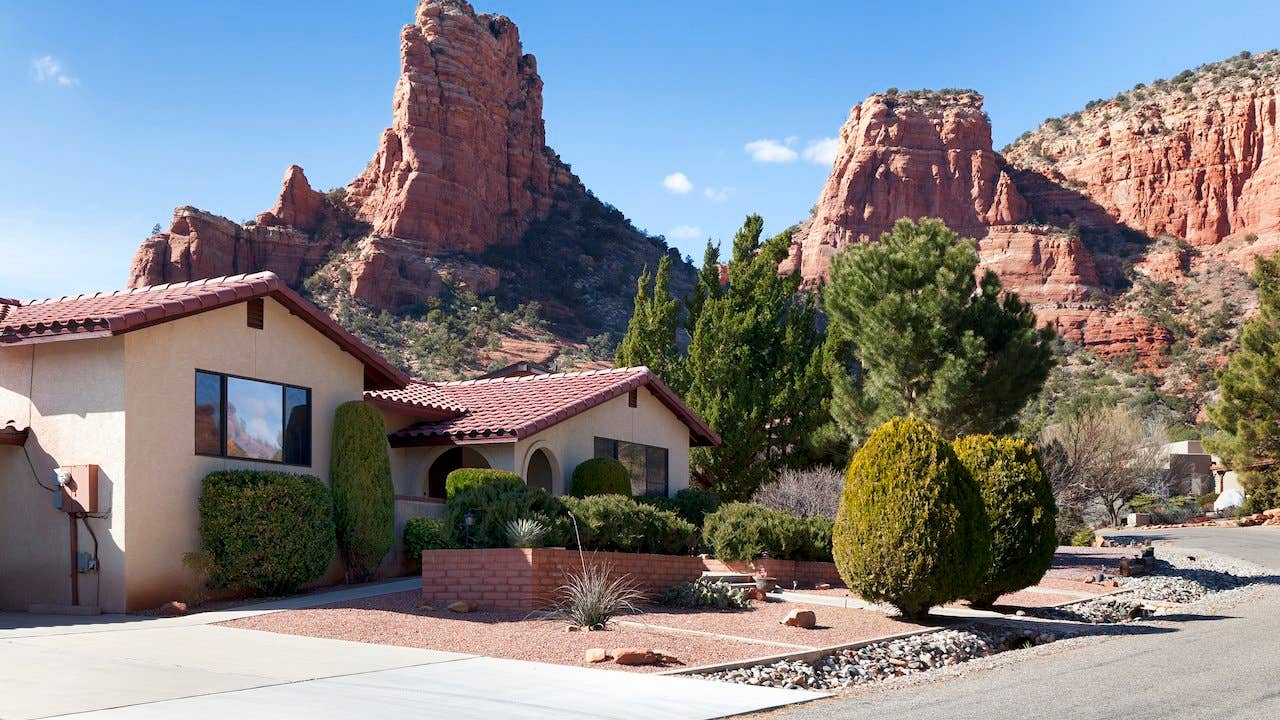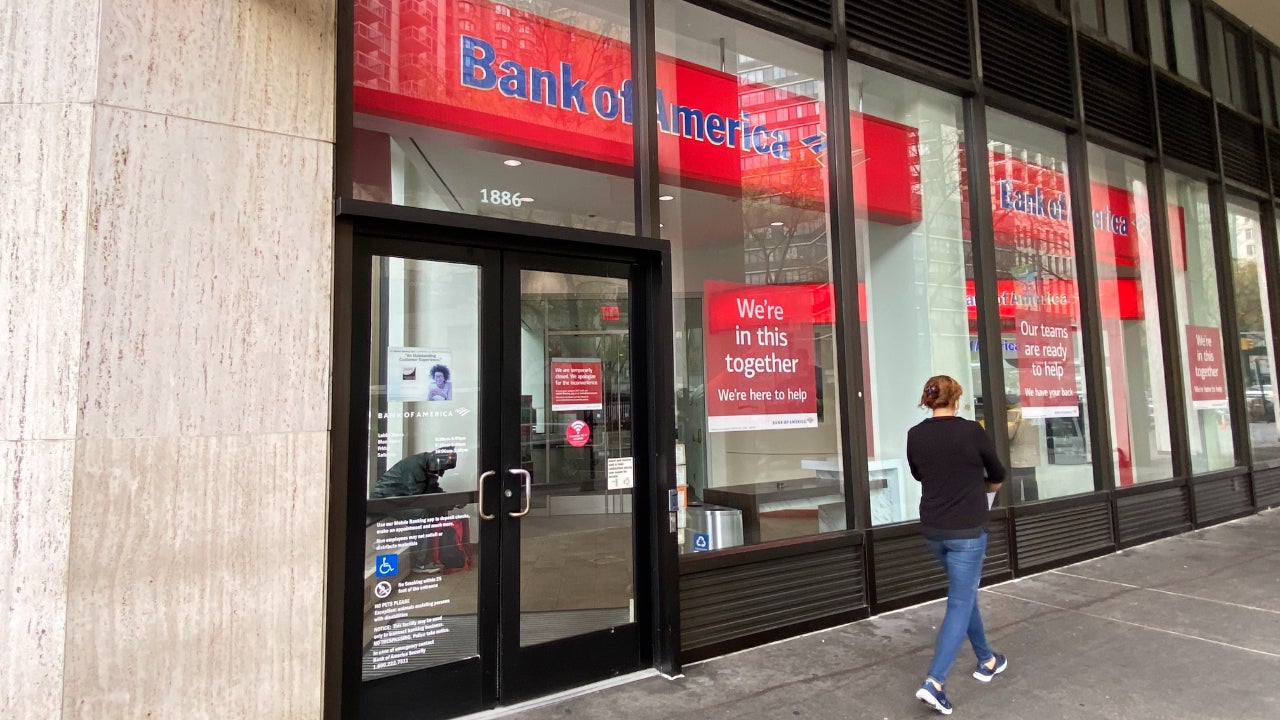Buying a house in Arizona: A how-to

If you feel the Southwest sun calling your name, you’re not alone: Arizona is the third most-moved-to state in the U.S., according to 2021 Census Bureau data. With that many people flocking to the Grand Canyon State, you might be wondering whether you should buy a house there now, or wait. If you can afford it, now is actually a pretty good time to buy in Arizona. While home prices surged here throughout the pandemic, things are starting to look better for buyers. Data from the Arizona Association of Realtors shows that the number of listings in the state increased by 14.6 percent in the past year. And according to Redfin, more than 36 percent of homes had price drops in June 2022. Use this as your guide to help figure out where to live, what to look out for and how much you should save to buy a home in sunny Arizona.
How to buy a house in Arizona
Decide where to live in Arizona
If you aren’t tied to a certain city in Arizona for your job, it’s smart to compare housing prices and the total cost of living in a few different parts of the state. As the biggest city in Arizona, Phoenix is likely on your radar. If you’re looking there, expect fairly stiff competition: About a third of homes there have sold for more than their listing price recently. Tucson is a great option, too, with median home prices at around $349,000 — lower than the statewide median. And it’s not just one of the best places to live in Arizona: Tucson is on Bankrate’s most recent list of the best places to live in the entire U.S.
Tips for buying a house in Arizona
As you compare home prices in different parts of the state, it’s important to determine how much money you will need to borrow. If the loan amount exceeds $647,200, you will need to compare options for jumbo loans. Arizona’s conforming loan limits for conventional loans in 2022 are the same in every county. There are, however, nuances to FHA loan limits: While $420,680 is the limit for FHA borrowers in most counties, there are exceptions in higher-priced areas like Maricopa County, where Phoenix is, and nearby Pinal County.
Arizona-specific things to know
- Property taxes: An Arizona homeowner’s property-tax bill isn’t too high compared with the rest of the country. Tax Foundation data shows that you can expect to pay 0.65 percent of the assessed property value for your annual tax bill, which averages out to around $1,150 per household. It’s important to compare different county rates, though. Residents in Pima County, where Tucson is, pay the highest property taxes in the state.
- Dual agency: Like many states, Arizona permits dual agency, which means that your real estate agent might also represent the seller in your transaction. However, the agent is required to get your consent if that’s the case.
- Seller’s disclosure: The state requires home sellers to complete a disclosure form outlining a range of information about the property. Read this document carefully to understand any potential warning signs about past roof leaks, problems with the HVAC system and more.
- Closing costs: In 2021, closing costs in Arizona averaged $4,701 — or 1.2 percent of the purchase price of the home — according to data from Closing Corp. This figure does not include lender fees, so some new homeowners may pay more to cover origination or underwriting fees.
- Attorneys: You are not required to hire a real estate attorney under Arizona state law. However, it is smart to consult one: Real estate transactions involve loads of money and a lot of complicated legal language. So, unless you’re a pro at sifting through contract details, a lawyer is a wise use of your money.
- Climate and weather: Life in Arizona means basking in the natural beauty of the desert sun — but it also comes with some heightened risks. According to the state’s department of forestry and fire management, there were more than 2,500 wildfires in Arizona in 2020 that burned nearly 980,000 acres of land. And despite its desert climate, flooding poses a risk here as well. In fact, parts of the state experience between 40 and 100 floods each year, according to the Arizona Emergency Information Network. So, as you compare options for homeowners insurance in Arizona, consider additional coverage to protect your investment.
How much house can I afford in Arizona?
Before you decide how much you can spend on a new Arizona home, you need to answer a more basic question: Are you ready to buy a house? If your credit is in good shape — a minimum of 620, but a score of 740 is ideal — you’ve checked off the most important piece of the puzzle. And remember that buying a home anywhere comes with additional expenses beyond the purchase price that you’ll pay at closing, including title insurance, escrow fees, lender fees and more. Consider whether you’ll live in the home long enough to justify those transaction costs.
Ready to crunch the numbers? Bankrate’s new-home calculator will look at your entire financial picture to help you set a maximum amount for your monthly mortgage payment.
Making a down payment in Arizona
When you’re doing the math on what it takes to buy a home, you might worry about one big question: How will you come up with enough upfront cash for a down payment? Well, if you’re a first-time homebuyer or you qualify as a low-income homebuyer, you might be able to get some help with that. For example, the Arizona Industrial Development Authority has a program called HOME+PLUS, which includes a three-year forgivable loan that can cover up to 5 percent of a home’s purchase price. You’ll need to earn less than $112,785 per year and satisfy a few other conditions. Be sure to ask your real estate agent for advice, too. In some cities, buyers can get additional down payment assistance if they are purchasing a home in a designated low-income neighborhood.
Get preapproved for a mortgage
Now, you need to pull together all the paperwork that shows why you should qualify for a mortgage, such as pay stubs, tax returns, bank statements and sources of income. You’ll need to share these with a lender to get preapproved. Some lenders can issue a preapproval letter in 15 minutes, while others might take a bit longer. Either way, this document is an essential piece of showing a seller in Arizona that your offer is strong, and that your mortgage application has a high likelihood of getting approved.
Find the right lender
Make sure you compare mortgage rates from multiple lenders to determine the right deal for your finances. Look at the APR, and ask about what fees you will have to pay and how quickly each lender can close the deal.
You may also want to explore companies like Ribbon and Opendoor, which can help finance cash-backed offers. To a seller, cash offers can look more appealing than financed ones — they can help you stand out if you’re competing against other buyers for the home.
Find the best local real estate agent in Arizona
Having a knowledgeable local real estate agent on your side means saving time: He or she can point you toward properties that fit your needs and your budget, so you don’t have to do the legwork yourself. Agents will also have a thorough understanding of the market and a sense of how quickly properties are going to contract — a huge help, especially if you’re buying a home from out of state. If you don’t currently live in Arizona, look for the letters CRP (Certified Relocation Professional) next to a Realtor’s name, which signifies that they’ve been trained in the kind of long-distance assistance you need.
Make an offer on a house
Now, it’s time to start looking for a house that feels like home. Are you looking for a single-family home with lots of land? Or is a condo with no landscaping duties a better fit for you? Regardless of what kind of place you’re looking to buy, there are plenty of options in Arizona: The number of available listings hit the highest number in more than two years in June.
While you’re house hunting, keep in mind that real estate is a very local game. In Mesa, for example, the median sale price is $460,000. Just 12 miles away in Scottsdale, though, the median is more than $800,000. Regardless of where you’re looking, the rising number of homes in Arizona spells good news when you are finally ready to make an offer. As of June 2022, the typical home here sold for 100.4 percent of listing price — a 2 percent drop from the previous year.
Inspection and appraisal
Once your offer is accepted, get a home inspection. Professional inspectors double-check the property to find any potential issues, so you won’t have any unpleasant surprises after you get the keys. This typically happens within a few days of going to contract, and while it is an optional expense, it is some of the smartest money you can spend: You want to make sure the home you’re buying won’t be a money pit of repairs.
If you’re financing your purchase, in addition to an inspection, your lender will require a professional appraisal. Appraisers evaluate the home and assign it a dollar value. If the appraisal is lower than the price you’ve agreed to pay, you will have to make up the difference (unless there’s a contingency in place to address this specific issue).
Do a final walk-through and close on your new Arizona home
It’s important to conduct a final walk-through before you become the home’s official owner. This step is fairly quick, as you are simply checking that there aren’t any damages or surprise issues that the seller is leaving at what will soon be your doorstep. If everything looks good, it’s time to close on the house. Ask about the best method to pay the closing costs — typically via a certified or cashier’s check or a wire transfer — and do some hand stretches before the big day, because you’ll have to sign your name on a whole lot of documents. Then, go bask in the Southwest sun: You are now an Arizona homeowner.
FAQs
-
Yes — Arizona is projected to be an attractive state for new residents for a long time. A recent study conducted by the state forecasts more than 700,000 new jobs by 2030, and another study forecasts that Arizona’s population will increase by 26 percent between now and 2040. So whenever you’re ready to sell, it seems safe to say you will be able to find a qualified buyer down the road.
-
A minimum credit score of 620, a debt-to-income ratio of less than 43 percent and enough liquid cash to make a sizable down payment will put you in the running to buy a home in Arizona. However, if you want the best deal possible on a mortgage, take steps to get your credit score above 740. But it’s not entirely impossible to get a home loan with subpar credit: Some lenders will approve borrowers with credit scores closer to 500 for FHA loans.
-
It’s a seller’s market, but there are signals that Arizona is starting to look a bit better for buyers right now. More than 40 percent of listings had price reductions in July 2022, and fewer homes are receiving offers above their initial asking price, according to Redfin. It’s a better time to buy in some cities more than others, too. For example, the average home sits on the market for 36 days in Tucson, giving buyers a bit more time than in Flagstaff, where the average home goes to contract in just 17 days.
-
Right now, the median down payment in Arizona is $59,000. However, you don’t necessarily need that much cash. With excellent credit, you might be able to qualify for a loan that requires just 3 percent down. If you bought a $400,000 home, that would be a down payment of just $12,000. As you put together a plan to save for a down payment, think about the type of loan you plan to use, your credit score and your willingness to pay for private mortgage insurance (PMI). For example, if you have a credit score of less than 580, you’ll need an FHA loan and a down payment of 10 percent of the purchase price. And if you don’t want to pay PMI, you’ll need to put down 20 percent of the purchase price.
-
Yes. Anyone from the U.S. or abroad can buy a house in Arizona. If you are a foreign national looking to buy property in Arizona, make sure you consult with an attorney about tax implications, and hire a real estate agent who understands the nuances of assisting clients who are from outside the country.
Why we ask for feedback Your feedback helps us improve our content and services. It takes less than a minute to complete.
Your responses are anonymous and will only be used for improving our website.






